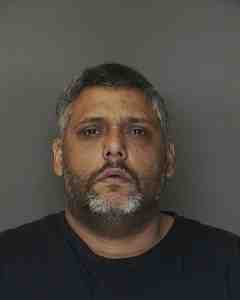Prudent Portfolio: Keep Spouse Informed on Financial Matters to Avoid Distress at Wrong Time
By Peter Chieco
 Last year, the parents of a friend celebrated their 64th wedding anniversary. They were a lovely couple in their eighties, enjoying a comfortable and quiet retirement after a life of hard work. Sadly, the husband – who had handled all the finances throughout their marriage – suddenly passed away.
Last year, the parents of a friend celebrated their 64th wedding anniversary. They were a lovely couple in their eighties, enjoying a comfortable and quiet retirement after a life of hard work. Sadly, the husband – who had handled all the finances throughout their marriage – suddenly passed away.
The wife was left overwhelmed. She had no knowledge of how to manage their investments or even what their assets were. The bank accounts were spread over several institutions. Old life insurance policies were tucked away in a safety deposit box. Their attorneys were no more than familiar-sounding names. She had never even paid a credit card bill.
To make matters worse, the husband’s decline over recent years had left its mark on his record-keeping. Letters and receipts had become haphazard and paperwork, carefully organized over a lifetime, was in disarray.
It took several months of exhaustive phone calls, poring through files and making an intense effort to educate herself before the wife began to feel financially literate enough to take control.
Being left in the dark about financial matters only adds extreme stress to the already-difficult days and weeks after the loss of a spouse. It is never too soon to educate your partner or beneficiary about your household’s financial operations.
Start by creating a list of names and contact numbers and e-mails, including attorneys, accountants, bankers, investment advisers, realtors and any other professionals advising you on financial matters.
Know the location of your wills, trusts, health care directives, power of attorney documents, life insurance policies, mortgage or lease papers, passports, titles, safety deposit box and key, tax returns, warranties and receipts for major purchases. If possible, keep these together in a locked, fire-proof safe in your residence.
Keep a list of all your assets with account numbers and passwords and where they are held. Be sure to update it annually.
Review and, if necessary, update beneficiary designations on IRAs, 401ks, life insurance policies, wills, trusts, and bank and investment accounts.
If you are computer savvy and adept at keeping online accounts, be sure to list often-used websites and note your passwords.
Create a contact list of all professionals that assist with home, auto and other maintenance items. Also indicate the service schedule for maintenance.
Additionally, it is always advisable to keep a log of all health care professionals – doctors, social workers, pharmacists and others — with their contact information. Include in this log a list of current medications (with dosages) and pharmacy data.
Thankfully, the wife, an intelligent and determined woman, is now at ease in charge of her own finances. She is conversant in compound interest, the tax implications of bonds versus equities and the benefits of investing in certain emerging markets over others. But how much distress she would have saved herself had she been informed all along.
Peter Chieco is a financial adviser with Morgan Stanley Wealth Management in Greenwich, Conn. He can be reached at 203-625-4897.
The information provided in this article is not a solicitation to purchase or sell investments. Any information presented is general in nature and not intended to provide individually tailored investment advice. The strategies and/or investments referenced may not be suitable for all investors as the appropriateness of a particular investment or strategy will depend on an investor’s individual circumstances and objectives. Investing involves risks and there is always the potential of losing money when you invest. The views expressed herein are those of the author and may not necessarily reflect the views of Morgan Stanley Smith Barney LLC, Member SIPC.

Examiner Media – Keeping you informed with professionally-reported local news, features, and sports coverage.

